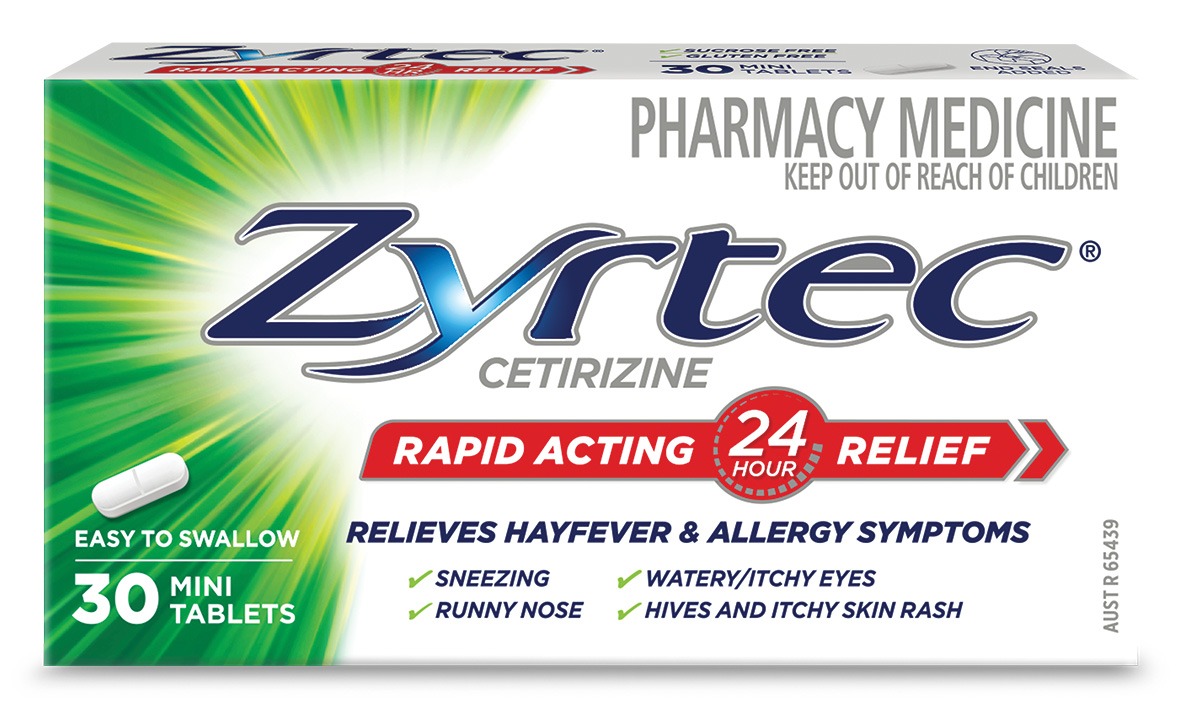Rosa is a 35-year-old professional struggling with persistent sleep disturbances. Despite maintaining a consistent sleep routine, exercising regularly, and avoiding heavy meals before bedtime, she found herself regularly waking during the night.
The consultation

Before providing Rosa a sleep aid such as melatonin supplements, you ask a series of questions to identify potential contributing factors for her condition and to determine if a sleep aid is the best treatment option.
Key questions to ask
Medical history:
- Do you have a history of allergies or asthma?
- Does anyone in your family have allergies or asthma?
Duration of symptoms:
- How long have you noticed symptoms?
Symptom pattern:
- Are the sleep disturbances worse at specific times of the year?
Nasal symptoms:
- Do you experience nasal congestion or breathing difficulties at night?
- Have you noticed an increase in sneezing or runny nose lately?
- Have you noticed any postnasal drip or coughing during the night?
Sensory Irritation:
- Do you experience any itching in your nose, eyes or throat?
- Do your sleep problems coincide with other symptoms such as headaches or
sinus pressure?
Environmental factors:
- Have there been any recent changes in your living environment that could be contributing to your symptoms?
- Have you recently introduced new furniture, carpets or other items into your home that might be contributing to your symptoms?
- Do you have pets in your home? If so, do you notice any worsening of symptoms when they are nearby?
- Have you noticed any improvement in your sleep when you’re away from your
usual environment?
 Timing of symptoms:
Timing of symptoms:
- Are your symptoms worse in the morning or at night?
Current approaches:
- How have you been trying to improve your sleep?
- Have you tried any allergy avoidance strategies such as using air purifiers or keeping pets out of the bedroom?
- Do you use nasal sprays or other medications for congestion? If so, how often?
Current medical status and medications:
- Do you have any other health conditions?
- Do you currently take any medication?
The diagnosis
Rosa reveals that when she wakes, she frequently has a blocked nose and itchy eyes, and she sneezes a lot in the evening before bed. She has suffered from very mild hayfever before but never at this time of year.
You suspect allergic rhinitis as the root cause. Rosa was surprised. Like many, she had dismissed her nasal congestion as a minor annoyance rather than a significant factor affecting her rest. She didn’t even think one could get hayfever in winter.
The treatment plan
You recommend a treatment plan to tackle the root cause of Rosa’s sleep disturbances. With proper treatment, she can manage her symptoms and improve sleep quality. Alongside managing environmental exposure you can recommend an antihistamine like:
Zyrtec Rapid Acting Allergy Antihistamine and Hayfever Tablets
Dosage: One tablet daily offers 24-hour protection.
You can also recommend Rhinocort nasal spray to be used when symptoms become acute.1
The outcome: restful nights and restored energy
Within days of following the treatment plan, Rosa noticed a remarkable improvement. Her congestion eased, she wasn’t waking up anymore, and she finally felt refreshed and energised throughout the day.
By looking beyond the immediate request for sleep aids, the pharmacist was able to identify the true cause of Rosa’s problem and offer a more effective, long-term solution.
Allergic rhinitis (AR) and sleep disruptionsAllergic rhinitis (AR), commonly known as hayfever, affects around 19% of Australians.2 Chronic nasalcongestion and other symptoms of allergic rhinitis can significantly impact sleep quality.3 This often results in daytime fatigue, decreased productivity, and impaired cognitive function. Patients may not realise that their persistent tiredness or difficulty concentrating stems from untreated allergies. Zyrtec works fast for hayfever relief and stays strong, day after day offering 24-hour relief from multiple symptoms. |
 Zyrtec works fast for hay fever relief and stays strong, day after day.4
Zyrtec works fast for hay fever relief and stays strong, day after day.4
If your patient is struggling with unexplained sleep
disturbances, allergies could be the hidden cause.
With the right management you can help them to reclaim restful sleep and feel their best every day.
References
- Approach to management of allergic rhinitis, [2020; amended July 2024]. In: Therapeutic Guidelines. Melbourne: Therapeutic Guidelines Limited.
- Definition and causes of allergic rhinitis, [2020; amended July 2024]. In: Therapeutic Guidelines.Melbourne: Therapeutic Guidelines Limited.
- Wise SK, Damask C, Roland LT, et al. International consensus statement on allergy and rhinology: Allergic rhinitis.
-
Urdaneta E, et al. Ann Allergy Asthma Immunol 2010;105(5):A121. (Sponsored by Zyrtec.)




 Deborah Williams at the Chemist Warehouse Australian Open pop-up pharmacy[/caption]
Deborah Williams at the Chemist Warehouse Australian Open pop-up pharmacy[/caption]


 Rebecca Davies[/caption]
Rebecca Davies[/caption]

 Professor Clare Collins[/caption]
Professor Clare Collins[/caption]
 Associate Professor Trevor Steward[/caption]
Associate Professor Trevor Steward[/caption]








